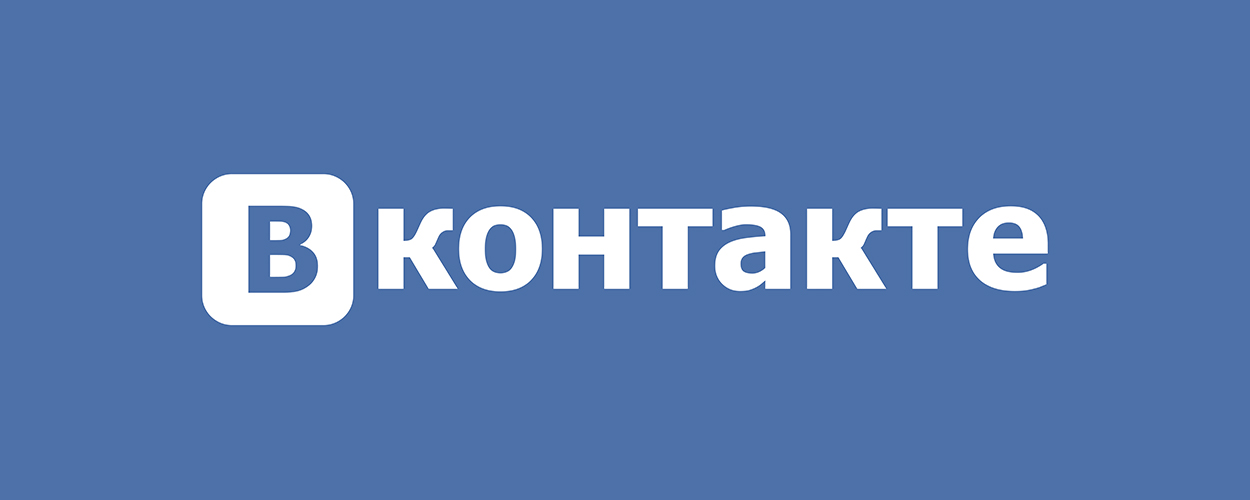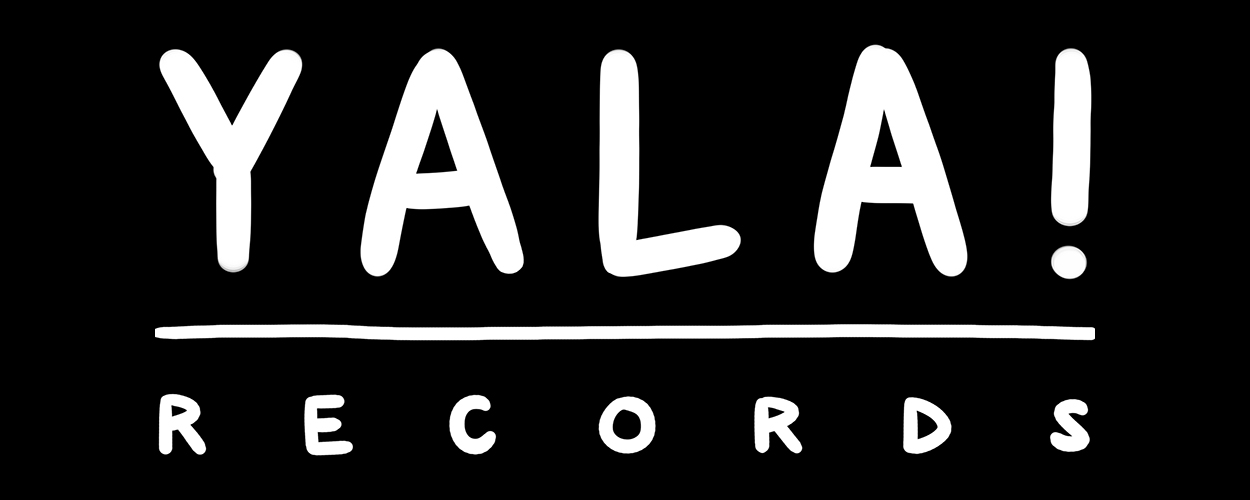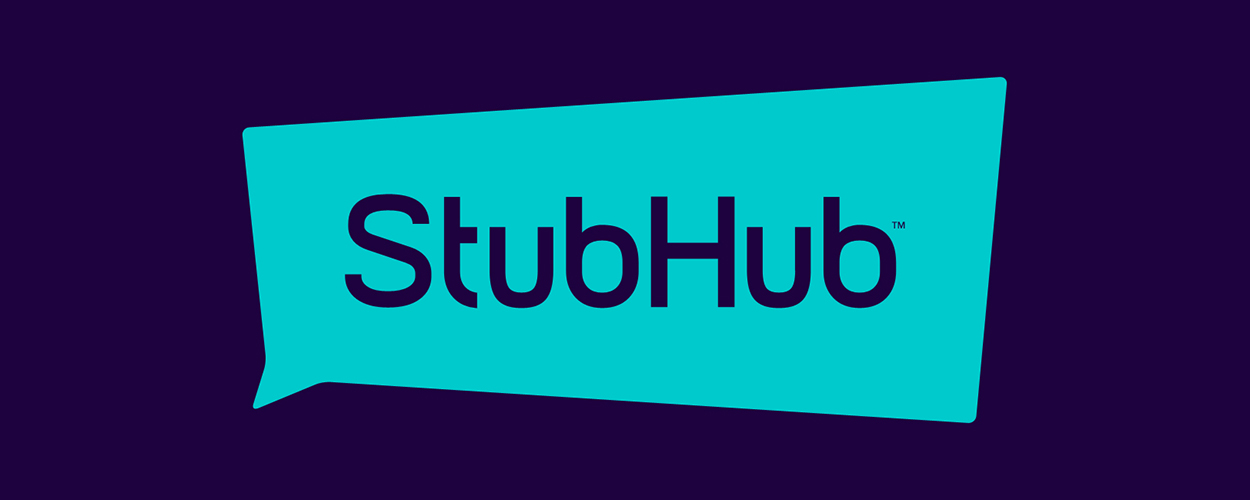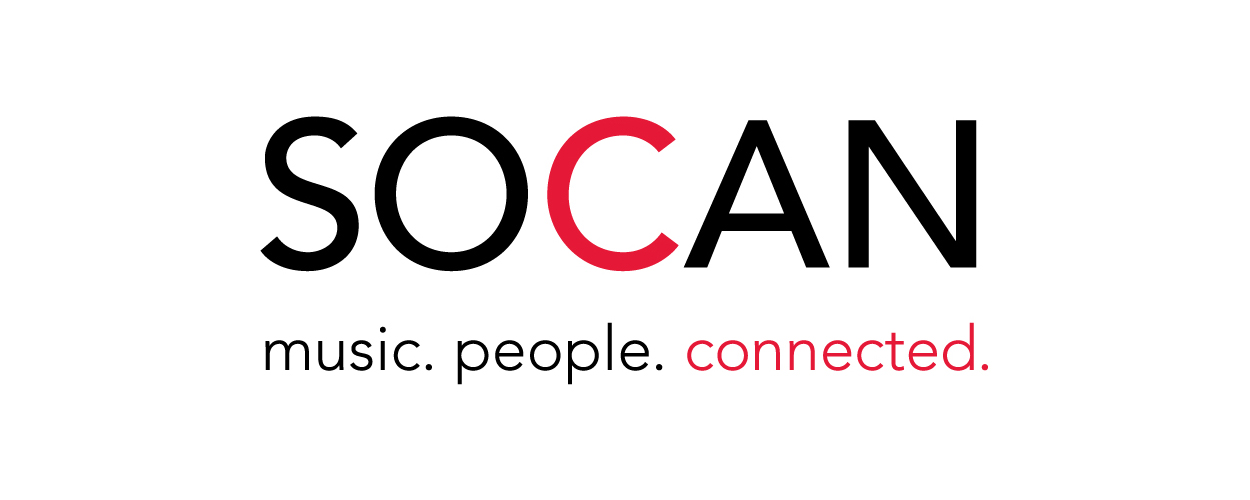This website uses cookies so that we can provide you with the best user experience possible. Cookie information is stored in your browser and performs functions such as recognising you when you return to our website and helping our team to understand which sections of the website you find most interesting and useful.
Wednesday 27 July 2016, 09:45 | By Chris Cooke
Regina Spektor announces four UK shows around new album
Artist News Gigs & Festivals

As you all know, because we told you, just yesterday for God’s sake, Regina Spektor will release her brand new album ‘Remember Us To Life’ on 30 Sep. It features songs written just before and after the birth of her first child in 2014, and of that time she says: “I made more art and felt more inspired than I had in a long time”.
But that’s not really why we’ve all gathered here today. Though do all check that you put 30 Sep in your diaries and remember to have a little listen to first single ‘Bleeding Heart’. But we’re actually here today to note that Spektor will be in the UK in November for four dates as part of her touring activity promoting the new long player.
The tour gigs off at Gateshead’s Sage venue on 9 Nov with subsequent dates in Manchester (Albert Hall on 10 Nov), Bristol (Colston Hall on 12 Nov) and London (Royal Festival Hall on 14 Nov. What a lot of halls.
READ MORE ABOUT: Regina Spektor
Wednesday 27 July 2016, 09:37 | By Chris Cooke
1D alumni are “incredibly loyal”, though not that Liam Payne, says Syco chief (sort of)
And Finally Artist News

As you all surely remember, last week One Direction star, singer extraordinaire and ungrateful little shit Liam Payne signed to Universal label Capitol Records, leaving behind Home-Of-1D Sony Music. Harry Styles, meanwhile, is set to sign Sony’s Columbia Records, while even lazy 1D drop-out Zayn Malik is currently working with Sony’s RCA.
But what does 1D maker, Syco chief and Sony Music exec Simon Cowell think about this development? “We’re in touch with them all”, says he of the 1D boys while chatting to The Sun at an ‘America’s Got Talent’ press conference, mainly because one of those boys – Louis Tomlinson – has appeared as a guest judge on the talent show.
Cowell then apparently continued: “The great thing about all these boys – well not all of them, but most of them – they are incredibly loyal, and you don’t always expect that. Niall, Harry, Louis – amazing”. Yeah, fuck you Liam Payne. And now you’re part of the Universal Music family you’ll have to make do guest judging on ‘The Voice’. I mean, how humiliating will that be?
READ MORE ABOUT: Liam Payne | One Direction | Simon Cowell
Tuesday 26 July 2016, 11:44 | By Andy Malt
Approved: Xander Harris
CMU Approved

Xander Harris is set to release new album ‘California Chrome’ on 23 Sep through Mogwai’s Rock Action label. Influenced by Italo disco, electronic body music, industrial electronic music and Giallo horror films, the first taste of the record is newly released single ‘Buckle Bunny’.
“‘Buckle Bunny’ is my favourite track from the album”, says Harris. “It incorporates several of the elements that I like about my music and the record. I like to explore harsh sounds and dance-y EBM rhythms and pile tons of melody in the midst of it to make a porridge of sound. This track is my love letter to Skinny Puppy, a band that I never ever get tired of listening to”.
“I wanted to challenge myself to create a record with an internal narrative and pursue performing that narrative out on the road as much as I am able”, he adds of the album as a whole. “I want people to feel something in a personal way that might scare them a little, something they’re afraid to face within themselves”.
Listen to ‘Buckle Bunny’ here…
Stay up to date with all of the artists featured in the CMU Approved column in 2016 by subscribing to our Spotify playlist.
READ MORE ABOUT: Xander Harris
Tuesday 26 July 2016, 10:35 | By Chris Cooke
SFX has a new plan, with a former AEG boss lined up to implement it
Business News Industry People Live Business Top Stories

Don’t worry everybody, flagging EDM peddler SFX may have abandoned its original plan for getting out of bankruptcy, but it has a new plan to take its place. A new plan everybody! Let’s get those bleeps back into business.
And not only does it have a new plan, but SFX could be close to appointing a new boss too, who would be charged with the task of turning a profit from the dance music firm’s portfolio of festivals. And that potential new boss, according to the Wall Street Journal, is former AEG Live chief Randy Phillips.
As much previously reported, SFX entered chapter eleven bankruptcy protection back in February after a tumultuous year which saw founder and CEO Robert FX Sillerman desperately and unsuccessfully try to take his struggling company back into private ownership.
The firm has since sought to sell off various periphery assets to help fund a revival of the core festivals business. The main two deals to date being the sale of marketing agency FameHouse to Universal Music, and ticketing outfit Flavorus to the major’s parent company Vivendi.
Attempts to offload digital platform Beatport failed, though SFX insists that – since abandoning Beatport’s ambitious move into streaming to refocus on selling downloads – that division is actually doing alright again.
Rumours that it was key creditors who forced the original chapter eleven plan to be dropped seem to be credible given what the WSJ is reporting about the new proposed arrangement.
Under the new deal, former owners of SFX, including Sillerman, would get nothing, with primary creditors Allianz SE and Axar Capital Management LP taking control of the business. Junior creditors, including the founders of many of the festivals SFX acquired, would also be offered smaller stakes.
Phillips departed AEG in 2013 and was last seen helping UK media company Global move its entertainment division into live music and the US via a short seven month stint as CEO of Global Entertainment. Pollstar first reported that he was being interviewed for the top job at the all-new streamlined SFX last week.
If all goes to plan, SFX could emerge from bankruptcy this autumn. The firm still has some decent brands and events on its books, and the company’s new owners will presumably be hoping that Phillips – unlike Sillerman – might stay a little more focused on growing the core live entertainment side of the operation, rather than buying up any company that does something vaguely resembling dance music. Even the aforementioned Beatport might be spun off as a standalone business to allow SFX to stay focused on live events, sources say.
An announcement regarding the Phillips hire is likely imminent.
READ MORE ABOUT: Randy Phillips | SFX Entertainment
Tuesday 26 July 2016, 10:31 | By Chris Cooke
Kickass remains offline despite the clones
Business News Digital Legal

A former Kickass Torrents team member has confirmed that the various mirrors of the file-sharing platform that are still available online are not fully-working versions of the site, while he and others have cautioned people against signing up to KAT clones, which may be scams designed to distribute malware or grab logins and passwords and such like.
While it wasn’t initially clear whether the arrest of the alleged boss of Kickass Torrents in Poland last week had actually taken the leading file-sharing hub offline, that does indeed seem to be the case. The US authorities – targeting servers used by the file-sharing operation in North America – seized various domains linked to Kickass as well as launching extradition proceedings against alleged overseer Artem Vaulin.
The former team member, going by the name Mr Black, spoke to Torrentfreak as an online community for those who used to help run the file-sharing site was launched. Though members of that community – former moderators and admins – don’t seem to have access to any Kickass code, having never had any direct connection with the site’s owner.
Of the online community, Black said: “We need to remember that Kickass Torrents is not simply about uploading, the heart and soul of KAT is our members, which are family and family is important as we all know. Nothing can ever take that away and no matter what happens we will not let our community down”. He then added that “we guarantee that KAT will continue in one form or another and we will come back stronger than ever”, though it’s not entirely clear what that means.
Of course it remains to be seen if the US can successfully extradite Vaulin and, if so, what defence the KAT man will use in court, assuming it can be proven he ran the file-sharing operation. Black claims that the charges against Vaulin are “murky” at best. Though that mainly relies on the golden oldie file-sharing excuse: “KAT didn’t actually host any copyright infringing files, we’ve never hear of ‘contributory infringement’, so that’s all fine, right?” Though he did then add the more contemporary “DMCA compliance” excuse too.
It seems unlikely either of those defences would stand up in an American court if Vaulin ever got there and used them. Though whether that means that KAT is basically dead in the long-term remains to be seen. Meanwhile that other file-sharing hub, which has proven very resilient over the years despite spectacularly failing in court with the “but we didn’t host any content” excuse – The Pirate Bay – has enjoyed a considerable traffic boost since its big rival’s demise last week.
READ MORE ABOUT: KickassTorrents
Tuesday 26 July 2016, 10:28 | By Chris Cooke
Beyonce hits back at film-maker’s ‘Lemonade’ rip off claims
Business News Legal

Can everyone please take note that Beyonce’s ‘Lemonade’ film is in no way similar to the short film ‘Palinioa’? And even if it is, those similarities in no way constitute anything even nearing copyright infringement.
Not my plea, ladies and gentleman, but those of the lawyer representing the singer and her company Parkwood Entertainment, who were sued in June by independent filmmaker and ‘Palinioa’ director Matthew Fulks.
He says that various elements of the film that accompanied Beyonce’s most recent album are taken from his work, including ‘graffiti and persons with heads down”, “red persons with eyes obscured”, “parking garage”, “feet on the street” and “side-lit ominous figures”. Basically, says Fulks, Beyonce nicked the “total concept and feel” of his short for her mini-film and its trailer.
But not so says lawyer Tom Ferber, according to The Hollywood Reporter. Yes, the two films both document “a distressed lover’s pain”, but a common theme, and any other stylistic similarities there may or may not be, do not constitute copyright infringement.
Says he in a legal filing: “A straightforward comparison of the parties’ works provides a textbook example of what does not constitute a legally cognisable claim of infringement”. He adds that Fulks legal claim “describes elements and features of the works in abstractions so broad as to be meaningless – because, as even a cursory review of the parties’ works makes clear, at the level of copyrightable expression the works are markedly dissimilar”.
Team Beyonce want the case dismissed forthwith. A court hearing is now set for 25 Aug.
READ MORE ABOUT: Beyonce | Matthew Fulks
Tuesday 26 July 2016, 10:26 | By Chris Cooke
BMG signs Labrinth
Artist News Deals Labels & Publishers

Labrinth, who is, let us not even begin to forget, not only a “chart-topping singer and songwriter”, but also a “producer and multi-instrumentalist”, has signed an exclusive songwriting agreement with BMG. Good times.
Although probably best known for his collaborations with that there Tinie Tempah, Labrinth has also written and produced for the likes of Rihanna, Emeli Sande, Kygo, The Weeknd, Plan B and Mike Posner. Though superstar collaborations aside, this new deal comes as Labrinth preps his own somewhat delayed second album ‘Take Me To The Truth’, which is now due out later this year.
BMG UK’s VP Creative Kate Sweetsur confirmed she was “delighted” to be working with Labrinth, which is BMG code for “THRILLED” by the way. “We’re absolutely delighted to welcome Labrinth to BMG”, said she. “The deal was very much a joint effort with Shani Gonzales in BMG’s LA office. Working internationally across everything we do is really important to us as a company”.
“Labrinth’s track record speaks for itself”, she added, before speaking for it anyway. “He’s firmly established himself as a chart-topping artist, a highly sought after collaborator and one of the most exciting songwriters of his generation. Being able to add him to the BMG roster demonstrates our continued desire and ability to work with the best creative talent in the music industry today”.
Hurrah!
READ MORE ABOUT: BMG | Labrinth
Tuesday 26 July 2016, 10:22 | By Chris Cooke
Verizon buys Yahoo
Business News Digital Media

So, US telecoms firm Verizon yesterday confirmed it was acquiring the core business of early-days-web-giant Yahoo for a neat $4.83 billion, which is not far off a tenth of what Microsoft offered for the company back in 2008. So that’s fun.
Though the Verizon acquisition doesn’t include Yahoo’s 15% stake in these-days-web-giant Alibaba, or its 36% stake in the separate Yahoo Japan business, shares which are currently worth more than eight times the value of this deal.
A separate rebranded investment business will also emerge from this arrangement that will retain those lucrative share-holdings. One of the reasons for selling the core Yahoo business is to separate it from the Alibaba equity in a tax efficient way, some shareholders fearing that Yahoo management could have exploited the company’s stake in the Chinese web firm to prop up its own search, social and content businesses.
Regulators and Yahoo shareholders must approve the Verizon purchase, which means the transaction won’t likely be complete until early next year. The plan, though, is to merge Yahoo with AOL, the other flagging former internet star acquired by Verizon last year.
Although both Yahoo and AOL now sit in the shadow of modern day web giants like Facebook, Google and, indeed, Alibaba, they both also boast a number of popular online brands amongst their respective assets and Yahoo alone still somehow reaches over a billion people each month across its sites, and they can’t all be just looking a porn on Tumblr.
AOL CEO Tim Armstrong told TechCrunch yesterday that he hopes, once combined, AOL/Yahoo will be able to secure a monthly reach of over two billion people which should, he reckons, help the company compete against those bigger rivals in the web advertising space. Quite how that merger will work, and which brands will survive and which will fall, all remains to be seen.
Hey, remember how Yahoo was an original pioneer in streaming music? Launch, anybody? Ah, those were the days.
READ MORE ABOUT: AOL | Verizon | Yahoo!
Tuesday 26 July 2016, 10:14 | By Andy Malt
David Bowie’s Lazarus musical coming to London
Artist News

David Bowie’s musical ‘Lazarus’ is coming to London for a four month run later this year.
The show, which opened in New York late last year, is inspired by Walter Tevis’s novel ‘The Man Who Fell To Earth’, is co-written by Bowie with Irish playwright Enda Walsh and is directed by Ivo van Hove. Bowie, of course, also starred in Nicolas Roeg’s 1976 film adaptation of the book. The performance features songs from Bowie’s last album ‘Black Star’, as well as older material, such as ‘Changes’ and ‘Heroes’.
The cast of the New York production will transfer over to the UK run, with ‘Dexter’ star Michael C Hall playing lead character Thomas Newton, Michael Esper playing Valentine and Sophia Anna Caruso playing Girl.
More information about the show here.
READ MORE ABOUT:
Tuesday 26 July 2016, 10:12 | By Andy Malt
DJ Fresh to quit touring
Artist News

DJ Fresh has announced that he plans to quit touring next year because he “cannot continue to be part of this industry”.
“I’ve decided to come off the road altogether after this year (Jan next year to be exact)”, he wrote on Facebook. “If you want to see me, come out to one of the gigs between now and then. It’s time to begin the next chapter of my life. And it’s way overdue. Need to think about my health and life. I cannot continue to be part of this industry. I hate everything about it. It’s fake, soul destroying and promotes everything BUT experimentation and heartfelt emotion (which is what music means to me)”.
Although that sounds like a damning indictment of the entire music industry, he went on: “I just want to add that this is in no way related to my record label/labels who have all been fantastic (there are some good ones out there!). Maybe one day I’ll write a book, and explain it then”.
There is no book yet though, so for now you can read the details of some of those final shows instead.
READ MORE ABOUT: DJ Fresh
Tuesday 26 July 2016, 10:04 | By Andy Malt
Insane Clown Posse to march on Washington
Artist News

Amazingly, that whole thing with Insane Clown Posse trying to get their fanbase – known as Juggalos – removed from the FBI’s list of dangerous gangs in the US is still ongoing. And their latest plan to get this done is to march on Washington.
You might say that gathering together a lot of people deemed to be a threat to society and then telling them to walk towards the centre of government isn’t such a great idea, but that’s because all the lists you’re on are super boring. Also, gathering is what Juggalos do, and possibly what caused this problem in the first place.
Speaking at the annual Gathering Of The Juggalos festival, the duo’s Violent J told fans, according to Detroit News: “In 2017, the weekend of 17 Sep, we need you. We’re gonna do a fucking march on Washington. They call the Juggalo World a movement, right? Well, let’s move! We are going to explain to the world who the fuck we really are”.
Quite why they’re planning this march fourteen months in advance isn’t entirely clear – though after five years of battling the FBI gang listing, maybe they’ve just lost their sense of urgency. What do we want? The declassification of our core fanbase as a “loosely organised hybrid gang”. When do we want it? Ah fuck it, whenever.
J also said that they would host a picnic and play a free show for juggalos at Jiffy Lube Live in nearby Bristow, Virginia the same weekend. Though despite this and his forthright intro, his speech then sort of tailed off a bit, with him admitting: “We don’t know what’s going to happen. We could totally embarrass ourselves, and there could be 25 people”.
As previously reported, ICP have been involved in ongoing litigation against the FBI since their fans were included in its National Gang Threat report in 2011. The duo’s lawsuit was dismissed in 2014, but was reinstated on appeal last September.
READ MORE ABOUT: Insane Clown Posse
Tuesday 26 July 2016, 09:57 | By Andy Malt
CMU’s One Liners: Sia, Skrillex, Wretch 32, more
Artist News Gigs & Festivals Releases

Other notable announcements and developments today…
• Sia is going to appear in the new My Little Pony movie, playing new character Songbird Serenade. The film is due out in late 2017.
• Skrillex and Rick Ross have released ‘Purple Lamborghini’, taken from the soundtrack album for new movie ‘Suicide Squad’, which is released on 5 Aug.
• Wretch 32 has released new single ‘All A Dream’, featuring Knox Brown. The track is taken from his forthcoming album, ‘Growing Over Life’.
• Regina Spektor will release her new album, ‘Remember Us To Life’, on 30 Sep. Here’s first single ‘Bleeding Heart’.
• Alexis Taylor has released the video for ‘I Never Lock That Door’ from his new solo album, ‘Piano’.
• Russian Circles have released yet another new track, this one called ‘Afrika’. It’s taken from their new album ‘Guidance’, out on 5 Aug.
• Shakin Stevens has announced a new album, ‘Echoes Of Our Times’. “Some of the tracks directly relate to stories and situations about my family past, while others are more of a social comment relating to the world that my ancestors, and we, live in”, he explains. It’s out on 16 Sep.
• Avenged Sevenfold have announced that they will be touring the UK, supported by Disturbed and In Flames, in January next year. The shows will conclude with a performance at London’s O2 Arena on 21 Jan. Tickets on sale this Friday.
• Corinne Bailey Rae will be commencing a UK tour at Leeds Town Hall on 28 Oct, which will conclude at the Shepherd’s Bush Empire on 8 Nov.
READ MORE ABOUT: Alexis Taylor | Avenged Sevenfold | Corinne Bailey Rae | Regina Spektor | Rick Ross | Russian Circles | Shakin Stevens | Sia | Skrillex | Wretch 32
Tuesday 26 July 2016, 09:48 | By Andy Malt
Donut-licking got Ariana Grande banned from the White House
And Finally Artist News

Ariana Grande seems to have lost out on the opportunity to perform for Barack Obama because of that time she licked a donut and then didn’t pay for it, and also because she said ‘ass’ on Twitter once.
As you may remember, a video of Grande licking a donut in a bakery and announcing that she hates both America and Americans was obtained by TMZ in July last year. This resulted in not one but two apologies from the singer, of varying quality.
An email chain between members of the Democratic National Committee, leaked on WikiLeaks, seemingly shows that two months later Grande’s antics got her turned down for a performance at the White House.
The reasoning, apparently, was that because she said she hates America, it might be seen as double standards that the Democrats were criticising Donald Trump for saying racist things about Mexicans, while welcoming someone who said daft things about America into the White House. Or something.
That might seem like a pretty spurious reason, though the fact that Grande hadn’t been vilified in the same way as Trump had already been raised by Republican congressmen Jeff Duncan. Oh America, you silly billy.
The vetting process also flagged up that, when a fan on Twitter had referred to Grande’s half-brother as “that homo”, the singer had responded by saying “‘that homo’ gets more ass than you’ll ever get in your life”.
No one actually mentions that licking a donut you don’t plan to buy is disgusting, and that she should be banned from the White House in case she starts randomly licking things. Though the email declining to book Grande does just say, “Nope, sorry”. And maybe that’s what that meant.
READ MORE ABOUT: Ariana Grande
Monday 25 July 2016, 10:27 | By Chris Cooke
CEO of struggling Guvera stands down
Business News Digital Top Stories

Just ask Crowdmix, when one of you co-founders gives up the post of CEO, leaving the job to another co-founder, that means things are going really well. Really, really, really well. Really, really, really, really, really, really, really, well. So fucking well, in fact, you couldn’t even picture just how well things are going. Unless you had a really deep well.
Anyway, Guvera co-founder Darren Heft has stood down as CEO. His co-founder – and the flagging streaming firm’s new Chief Exec – Claes Loberg confirmed this development to The Courier-Mail late last week, adding that Heft will remain on the company’s board.
Said Loberg: “I am stepping in to the role of CEO. Darren will still have a seat on the board and work with us going forward. My focus as CEO will be to further develop our platform in our top markets including India and Indonesia, as well as my current research into China”.
Heft’s departure follows the decision to put two of Guvera’s subsidiaries into administration, after the Australian Securities Exchange blocked the loss-making streaming set up’s plans to float.
Given the figures Guvera that shared as part of its failed attempt to IPO, there has been much speculation about the future of the company, which maintains that there is a gap in the market to be the ad-funded free-to-access streaming platform, even though no one – market-leaders Spotify and Pandora included – have managed to make free streams pay.
Confirmation that Heft had stood down emerged alongside other reports, also in The Courier-Mail, to the effect that creditors of the two defunct Guvera companies could see just 10-25 cents for each dollar they are owed.
The tabloid adds that a report by administrators Deloitte says the streaming firm may have been insolvent back in 2014, and that directors, including Heft and Loberg, “possibly contravened the Corporations Act by ‘not acting with the standard of care and diligence required or in good faith by using their position and information'”.
None of which will help calm speculation about the insecure future of the wider Guvera business, however many YouTube videos get posted.
READ MORE ABOUT: Claes Loberg | Darren Heft | Guvera
Monday 25 July 2016, 10:24 | By Chris Cooke
isoHunt founder settles with the labels
Business News Digital Labels & Publishers Legal

Just as recent file-sharing leader Kickass Torrrents was given a good kicking last week following the arrest of its alleged overseer, the founder of a file-sharing platform of old has finally settled with the record industry.
isoHunt founder Gary Fung seemed to relish battling with the music and movie industries over the legalities of his file-sharing platform, but he finally gave up in 2013 in a deal that took the then ten year old service offline. Though that deal was with Hollywood, not the music industry.
The labels’ settlement then took another two and half years to hammer out. Because Fung is Canadian, it was Music Canada that led on those negotiations, and an agreement has finally been reached. Fung will pay the labels $66 million, breaking down as $55 million damages, $10 million in aggravated punitive damages and $1 million in legal costs.
Confirming a deal had finally been done, while referring to Music Canada by its old name of the Canadian Recording Industry Association, Fung said this weekend, according to Torrentfreak: “After ten long years, I’m happy to announce the end of isoHunt’s and my lawsuits. And I want to congratulate both Hollywood and CRIA on their victories, in letting me off with fines of $110 million and $66 million, respectively. Thank you!”
So that’s that done and dusted. Who’s next? I wonder what file-sharing platform all the cool kids are now using. Anyone know a cool kid?
READ MORE ABOUT: Isohunt | Music Canada
Monday 25 July 2016, 10:21 | By Chris Cooke
vKontakte boss wants his company taken off all the piracy lists
Business News Digital Labels & Publishers

The boss of Russian social network vKontakte has been a chit chatting to Torrentfreak following his company finally settling with Universal Music earlier this month.
As previously reported, that deal brings to an end vKontakte’s long-running legal battle with the record industry. Universal is the final major to settle its copyright infringement action and concurrently sign up to work with the social network and its parent company Mail.ru Group on licensed streaming services in Russia.
Though, while the majors are now allies of Boris Dobrodeyev’s company, he maintains that the rampant distribution of unlicensed music files across vKontakte’s social network, which is what got the labels so pissed off in the first place, was never “piracy”.
“The term ‘piracy’ is not applicable to user generated content services”, he says, relying on a familiar argument. “Our position, which we have successfully defended in legal disputes, is that we do not distribute pirate content. vKontakte’s content is user-generated, and so the rights holders’ requests were directed to them. From our side, we do everything that we can to protect the rights of the holders and remove content that violates their ownership rights”.
Though it does seem that vKontakte might be doing even more “everythings” now that they are in business with the record industry. “Now that vKontake has signed the respective agreements with the major music companies”, he goes on, “it is implementing substantial measures to identify the ownership of user content on the basis of the original files provided by the rights holders”.
Which is all lovely. Though in return – aside from getting lots of content for his company’s legit music services – Dobrodeyev would also like the music industry to ensure that his firm is removed from the copyright hall of shame, aka the US government’s Notorious Markets list, which documents those who the entertainment industry reckons don’t pay much respect to the intellectual property of others. Amid all that former criticism from the major record companies, the Russian social media firm found itself included on that list.
“We certainly hope that vKontakte will be removed from ‘piracy’ lists following the settlements and taking into account the enormous amount of work that the network has undertaken in this area”.
Don’t worry Boris, I just took a sneaky look at the list of the 20 websites most hated by the music industry in 2016 and you’re not on it. In fact, here it is…
1. YouTube
2. YouTube
3. YouTube
4. YouTube
5. YouTube
6. YouTube
7. YouTube
8. YouTube
9. YouTube
10. YouTube
11. YouTube
12. YouTube
13. YouTube
14. YouTube
15. YouTube
16. YouTube
17. YouTube
18. YouTube
19. YouTube
20. YouTube (actually, that one might be a Vevo channel)
READ MORE ABOUT: vKontakte
Monday 25 July 2016, 10:18 | By Andy Malt
The Lottery Winners sign to Sire
Artist News Business News Deals Labels & Publishers

Lancashire indie band The Lottery Winners have signed to Warner’s Sire label, snapped up by Sire chief Seymour Stein himself.
“For us to be added to Seymour’s star-studded list of artists is an absolute honour”, says guitarist Rob Lally. “He has signed many of our influences over the years. We are very excited to continue our hard work along side him”.
Frontman Thom Rylance adds: “It’s hard for me to get my head around how much of a big deal this actually is. I’ve barely had time to process it. It’s such a privilege to sign with a company as prestigious as Warner, and I’m very excited about our music being released in the States, as well as here. I’ve always wanted to go to New York!”
Meanwhile, Stein himself says: “It’s so refreshing to see a band that have both truly amazing songwriting AND a unique and exceptional live show. I expect great things from this very special bunch of musicians”. Time for one quick pun, Seymour? “I feel like it’s Sire that’s won the lottery with this great signing”. Perfect.
The band will be heading out on a UK tour in September and October. Here’s the video for new single ‘Young Love’:
READ MORE ABOUT: Seymour Stein | Sire Records | The Lottery Winners | Warner Music
Monday 25 July 2016, 10:15 | By Andy Malt
The Maccabees’ Felix White launches label and club night
Business News Industry People Labels & Publishers

Maccabees guitarist Felix White and Warner publicist Morad Khokar have launched a new label called Yala! Records and an accompanying club night.
“We thought this could be a nice opportunity to bring this community together, whether it be producers or designers or promoters we have known for a long time, working together on helping new music find its own way, and after that, the sky’s the limit”, says White of the new venture. “Everything starts with the club night though; it will be the focal point of what we do going forward, and with this opening line up we’ve set the bar suitably high for future nights”. Wanna know the line-up? Well, be patient then.
First you need to know that a further inspiration for the new company is White’s fear that new bands have fewer opportunities to build a career in nice neat stages these days – The Maccabees having gone from small gigs, to self-releasing their debut single, then working with Fierce Panda, followed by signing to Fiction.
“All those avenues and opportunities for bands don’t seem to be as prominent anymore, and those interim labels are important”, he says. “If we hadn’t taken those little steps, I’m not sure if we’d have gotten to a point where a label wanted to take a chance on us. [The Maccabees’ debut single] ‘X-Ray’ was limited to 500 copies, but it was released on vinyl with a sleeve and everything, and it ended up getting played by Steve Lamacq. That was the biggest buzz I can remember, even now”.
As for the new venture’s name, he explains: “My grandmother was Palestinian and she used to cross between speaking Arabic and English, and it’s something she used to say all the time: ‘Yala! Hurry up! Let’s go!’ It’s always stuck in my head and it felt like it fitted – let’s stop talking about it and try to make it happen”.
Too right. And that first edition of the new night’s line-up? Well, the first Yala! club night will take place at the Bermondsey Social Club in London on 5 Aug, headlined by The Magic Gang with DJ sets from The Maccabees and Mystery Jets.
READ MORE ABOUT: Felix White | Morad Khokar | The Maccabees | The Magic Gang | Yala! Records
Monday 25 July 2016, 10:12 | By Andy Malt
eBay to buy Ticket Utils to boost large scale touting on StubHub
Business News Deals Digital Live Business

eBay has announced plans to acquire ticket-selling-management-software maker Ticket Utils, with plans to incorporate it into its secondary ticketing set-up StubHub. Ticket Utils makes a variety of applications for large scale sellers on the secondary market, which allow users to automate and manage listings for tickets across multiple stores.
“As StubHub seeks to become a truly global brand, we are working on new ways to ensure that sellers have effective, useful tools to better manage their inventory, pricing, distribution and internationalisation”, says StubHub President Scott Cutler. “Ticket Utils is an example of the ways in which we are listening to our customers and working to improving their selling experience, which is a benefit to our business and theirs”.
Ticket Utils President Brian Hampel adds: “Ticket Utils has a strong history of providing large ticket sellers a sophisticated tool for managing their inventory, and with StubHub, we’ll be able to expand our reach and increase sellers’ success even further. Scaling globally is an opportunity for growth, and we’re especially focused on introducing StubHub sellers to the ease and efficiency of entering new markets with Ticket Utils’ inventory solution”.
Although Ticket Utils already had some official association with StubHub, the acquisition is likely to further annoy those angry that so much of the secondary ticketing market is made up of commercial sellers buying and selling tickets in bulk, rather than individuals who find themselves unable to go to a show.
READ MORE ABOUT: eBay | StubHub | Ticket Utils
Monday 25 July 2016, 10:11 | By Andy Malt
Pono store goes offline after Omnifone sale
Business News Deals Digital

I don’t think I’ve seen the words “under construction” emblazoned across a website since the late 90s. So the website for Neil Young’s PonoMusic is making me feel quite nostalgic today – those words appearing in bold across its front page after its download store was taken offline. Until last week, content was provided to the high quality download store by Omnifone, but this source was cut off when that company was purchased out of administration (very possibly by Apple).
“One of our key infrastructure partners – Omnifone – has recently been acquired by a large company”, says a notice on the PonoMusic website. “An impact of this purchase is that all Omnifone’s supply relationships are being terminated, effectively immediately. Omnifone has been the exclusive content provider for PonoMusic”.
In light of this, the Pono download store is being restocked through a new deal with 7digital. “In early anticipation of this change, sometime ago we began, and subsequently concluded, negotiations to move our content provision to 7digital, the leading independent music content/services platform”, the statement continues. “This process of transition is now well underway, but not yet complete. Please rest assured that our contractual relationships with all the major music labels remain fully intact and will transition to our new platform”.
Access to the store was suspended last Wednesday, and it remains offline this morning, with no indication of when it might return.
READ MORE ABOUT: 7digital | Omnifone | PonoMusic
Monday 25 July 2016, 10:07 | By Andy Malt
Cher Lloyd activates new single
Artist News Releases

Cher Lloyd has released the first track from her third album, titled ‘Activated’.
Speaking to Rolling Stone, Lloyd says of the single: “I think when we first started writing ‘Activated’ – in the very beginning stages – I had said that I wanted a song [reflecting] exactly how I feel. [It’s] this feeling that I have of just wanting to run as fast as I possibly can and just move”.
“I wasn’t going to just record something and release shit for the sake of having a song out”, she continues. “I wanted to feel something when I heard [it], and I wanted to feel like I did when I first started, like when I used to sing in my bedroom when I was fifteen. My fans deserve something that’s honest and comes from me. It’s my new phase. Everything is about to change”.
Listen to ‘Activated’ here:
READ MORE ABOUT: Cher Lloyd
Monday 25 July 2016, 10:01 | By Andy Malt
CMU’s One Liners: Kobalt, Marshall, BASCA, more
Artist News Brands & Merch Business News Gigs & Festivals Labels & Publishers One Liners Releases

Other notable announcements and developments today…
• Kobalt has acquired the publishing catalogue of Nettwerk Music Group, via its investment fund KMC. KMC CEO Johan Ahlstrom is “THRILLED”.
• Marshall Amplification has announced it is launching its own record label, Marshall Records. The company will be run by producer Rob Cass, industry veteran Steve Tannett and Marshall Brand Licensing Director Grace Pantony.
• Musician and former co-CEO of the Featured Artists Coalition, Crispin Hunt has been announced as the new Chair of songwriter organisation BASCA. Oh, he’s also a songwriter, did I mention that? “I am absolutely delighted and honoured”, he says.
• Tiga has released the third and final part of his documentary series, ‘No Fantasy Required’. It gives an insight into his unorthodox studio technique.
• Spacemen 3’s Will Carruthers will be reading from his new book at the next Faber Social at The Social in London. Tickets here.
• 5 Seconds Of Summer have released the video for new single ‘Girls Talk Boys’, taken from the soundtrack of the new ‘Ghostbusters’ movie. “We are so excited for the fans to hear our new direction of music”, says the band’s Ashton Irwin.
• Die Antwoord will release new album ‘Mount Ninji And Da Nice Time Kid’ on 16 Sep. Here’s first single ‘Banana Brain’.
• Cassius will release new album ‘Ibifornia’ on 26 Aug. From it, and featuring Cat Power, this is ‘Feel Like Me’.
• Following on from that video that appeared to take over your phone, J-pop group Lyrical School have released a more conventional promo clip (though with an unconventional amount of fireworks). Watch here.
• M83 is playing Brixton Academy on 11 Nov.
• Blossoms are heading out on a UK tour in September and October, following the release of their debut album on 5 Aug. Among the dates, they’ll play The Forum in London on 29 Sep.
• NZCA Lines are doing a free show at the Assembly Point art gallery in London tomorrow night, which will showcase new live visuals in collaboration with Taxonym and Amala. Further details here.
• Look, I know you think signing online petitions is pointless and they just facilitate people feeling like they’re doing something without actually becoming politically active, but this one is important.
READ MORE ABOUT: Blossoms | British Academy of Songwriters Composers & Authors (BASCA) | Cassius | Crispin Hunt | Die Antwoord | Five Seconds Of Summer | KMC | Kobalt | Lyrical School | M83 | Marshall Amplification | Marshall Records | Nettwerk Music Group | Nick Clegg | NZCA Lines | Spacemen 3 | TIGA | Will Carruthers
Monday 25 July 2016, 09:57 | By Andy Malt
Pokemon invade music venues
And Finally Artist News Digital Live Business

All over the world right now, people are busy fulfilling the vital and important work of finding Pokemon and catching them in small balls. And the work being carried out through the new ‘Pokemon Go’ app never stops, not even on a night out.
You might be waiting for Garth Brooks to come on stage, or watching Kaiser Chiefs play a few of their songs, but there’s Pokemon catching work to be done. So much so, Bandsintown has already compiled a list of US gig venues where these creatures can be found. Pokemon do not respect your leisure time, and they must be trapped and forced to fight each other at every possible opportunity.
Some people don’t recognise how vital this work is though, and think that you should leave those Pokemon alone while you watch artists sing. A Beyonce fan called out someone in front of them at a show over the weekend in an Instagram video. You might argue that shouting loudly while Beyonce was performing was worse fan behaviour than having a quick look at your phone, but this person would apparently not agree.
Meanwhile, Rihanna explicitly forbade fans from “catching any Pokemons up in this bitch”. But what if there’s a rare one in the stadium, Rihanna? What then? They can’t just be left to hop off into the sunset, can they? Let’s get some perspective here.
READ MORE ABOUT: Beyonce | Pokemon Go | Rihanna
Monday 25 July 2016, 09:03 | By Andy Malt
Approved: Holy Child
CMU Approved

Self-styled ‘brat pop’ duo Holy Child released their latest EP, ‘America Oil Lamb’, last month. Featuring collaborations with Kate Nash, MS MR, RAC, Mereki, Tkay Maidza and Kitten, it features five tracks worth of pop with big ideas, lead by last single ‘Rotten Teeth’.
The video for next single ‘Power Play’ was released last week, of which vocalist Liz Nistico says: “I directed this video and wanted it to be a visual representation of my current obsession: industrial pop art on sale at the local mall. In typical ‘brat pop’ fashion the song touches upon my fear of aging, and the lyrics felt so true that for the first few months after writing them I would cringe when I listened to the song”.
Watch the video for ‘Power Play’ here:
Stay up to date with all of the artists featured in the CMU Approved column in 2016 by subscribing to our Spotify playlist.
READ MORE ABOUT: Holychild
Monday 25 July 2016, 07:46 | By Chris Cooke
Trends: Seeking alternative ways to stream – the SupaPass approach
CMU Trends Digital

Whether it’s the increasingly vocal war of words between Spotify and Apple, or the music industry’s full on attack against YouTube, much of the debate of late over streaming has been about the freemium versus premium challenge.
Paid for services bring in the vast majority of the money, but the ad-funded free-to-access platforms have way more users. While that is, perhaps, inevitable, the music industry needs to convert as many freebie streamers into paying subscribers as possible, and some worry that the freemium and premium set-ups are just too similar to assure enough conversions.
But that is not the only debate to be had on the future of streaming. Beyond growing the digital pie, there remains the tricky issue of how to slice it. How big a slice should different stakeholders receive?
The digital pie debate has several elements to it. We’ve discussed at length how streaming income is split between the two sets of music rights – recordings and songs – and how the former get a significantly larger allocation. And we’ve discussed how labels then share streaming income with their artists.
The ‘Dissecting The Digital Dollar’ report that we produced for the Music Managers Forum summarises both of those discussions in detail, and part two of that report will dig even deeper into how streaming income is divided between the different stakeholders.
However, there is one other discussion to be had about the way streaming income is shared – this one focused not on how the stakeholders in any one track divvy up the money, but on how streaming monies in general are shared across the music industry. And it’s this discussion that has been brought to the fore by digital start-up SupaPass, which formally unveiled its service earlier this month.
STREAMING DEALS
While Spotify and Apple Music may differ on quite what a streaming service should be offering to users free of charge, the two services, and most audio streaming services, operate more or less the same business model. Their deals with the music rights owners – labels, publishers and collecting societies – are usually revenue share arrangements at heart.
At the end of each month, the streaming service works out how much money it made in the previous period, how many tracks were streamed over all, and what percentage of those streams were of recordings or songs from any one rights owner’s catalogue.
It then allocates the money it made between the different rights owners based on that percentage, and then splits that allocated money with said rights owner based on whatever deal they have done. So if 10% of all listening came from one label’s catalogue, 10% of all income is allocated to that label. If the label is on a 58% deal, it then gets 58% of that 10%.
There are various complications layered on top of that, of course. The streaming service likely does that calculation separately for each territory and each service type (premium, freemium, mobile bundle etc).
Most streaming services are also obliged to pay a minimum rate per stream, and if the revenue share arrangement pays out less than that minimum, the streaming platform makes up the difference. Which is why, although the streaming services in theory should get to keep 25-30% of their income overall, none do, which is why the streaming firms are all loss-making enterprises.
But, crucially, the business model is ultimately a revenue share arrangement, and the hope is that eventually the platforms will start to always pay out on a revenue share basis, either because the rev share payments will always out-perform the minimum guarantees, or because minima will eventually be cut from the deal, or both. Each streaming service then needs to work out how many paying users it needs overall in order to survive on 25-30% of the money.
PROBLEMS WITH THE STREAMING MODEL
Even if that business model ultimately works, the streaming sector becomes secure, and with it so does the record industry’s main growth revenue stream, there is arguably an inequity with that approach.
At the end of every month all the subscription money is basically put into one pot and shared out based on overall consumption share, with no acknowledgment of the consumption habits of individual users, some of whom will listen to lots of music and some of whom will listen to a little.
Which possibly skews against certain individual artists and labels.
For example, if I pay £8 a month to a streaming service (after sales tax) and only listen to the music from one singer-songwriter, for a few hours each week, I might expect that one singer-songwriter – and his or her business partners – to get at least 70% of my subscription money.
But they almost certainly wouldn’t. Because my £8 is combined with everyone else’s £8 and then shared out across the industry. After that process is complete, the singer-songwriter I am exclusively streaming will likely see a much smaller cut of the money.
What if, each month, my subscription money was exclusively shared among the artists I actually streamed, so that consumption share was calculated on a user-by-user basis rather than industry wide. Ignoring the minimum guarantees, the value per stream would vary greatly depending on how many tracks I listened to over the month. But it would mean if 25% of my streams came from one artist, they would see 25% of my subscription money.
THE SUPAPASS APPROACH
SupaPass – by combining streaming with direct-to-fan – operates a business model more akin to the latter approach. From a user’s perspective, rather than signing up to the service, you sign up to individual artist channels via the SupaPass app. For each artist channel you sign up to, you get access to that act’s catalogue, their social media output in one place, and – if the artist decides to go this route – VIP content not available anywhere else.
From an artist’s perspective, you put all of your content – music, videos, chatter – in one place and put a monthly price on it. That monthly subscription fee then entirely belongs to you and your various business partners, oblivious of what happens across the wider platform. And, indeed, oblivious of how much content the fan consumes in any one month.
In among all of the aforementioned debating about the streaming music future, one question that is sometimes raised is “what is the value of one stream?” The conclusion is usually “more than we’re getting now”. But there is an argument that this is the wrong question to ask in the first place. A stream has no intrinsic value. What has value is the fan. And that is the basis of the SupaPass model.
“The revenue is not paid per stream, it is paid per fan per artist each month”, explains founder and CEO Juliana Meyer. “So the artist – and the rights holders – know that they will be receiving their share of the £1 each month, irrespective of whether the fan has streamed the artist once or a thousand times”.
From the fan perspective, she continues, “one of the exciting differences about the SupaPass revenue model is that a fan knows that their £1 per month is going solely to that artist that they want to support instead of being split between thousands of other artists they never stream”.
CHALLENGES
Obviously the challenge of combining direct-to-fan with streaming is that there will be multiple stakeholders involved, so it’s not as simple as artist and manager taking the lead.
Even a self-releasing artist will likely be a member of a collecting society on the songs side who will control at least the performing rights, and many artists will have labels and publishers who need to be cut in as well. So even though the basic model here is a lot simpler than with the big audio-streaming services, there are still some complexities in how revenue is distributed.
Which is something SupaPass has had to navigate. “For each artist channel we split the income between the different rights holders of that artist’s music catalogue”, Meyer explains. “We send royalty reporting and payment distribution to labels and publishers and they distribute to the artists and songwriters. We also share data with the artists and pay artists directly for ‘VIP’ content”.
“If an artist has split catalogue, where different albums are on different labels – and perhaps some is owned by the artist directly – we calculate and pay each label separately for each part of the catalogue, according to how much the fans listened to their tracks that month”, she continues.
The business model employed by the other audio streaming services arguably skews in favour of superstar artists and big rights owners; and a cynic would argue that that’s hardly surprising, given that the major labels negotiated their deals first when the initial streaming start-ups were first evolving their businesses. Though Meyer thinks that the alternative approach employed by SupaPass is attractive to bigger artists and labels too.
“The big artists and rights holders are keen to use this model for a number of reasons”, she claims. One spin is that, with a £1 a month subscription, an artist and label can earn something akin to an old fashioned album income, while providing the fan with the simple, multi-device, streaming experience they increasingly demand.
“The big players have also said that they like that SupaPass re-establishes the emotional and monetary connection that they had when a fan went to a store to buy a specific artist’s music”, she says. “SupaPass makes that possible again in an exciting new way”.
The fact that Meyer is mixing direct-to-fan with the alternative approach to streaming income certainly helps. Which is to say, if you set up a Spotify-type business tomorrow that paid out based on each individual subscriber’s monthly consumption, as described above, you’d probably get push back from the majors. Not to mention the fact that, with minima still standard in streaming deals, that start-up probably couldn’t make it work, even if they could get sign up from enough labels.
However, while Meyer sees SupaPass more as a streaming product than a direct-to-fan platform, she also reckons her business complements rather than competes with Spotify et al. Referencing feedback from current users, she says: “For those that subscribe to £10 per month models, they also subscribe to an artist on SupaPass because they get more than just the music, plus they feel they are supporting the artist. In fact, over 80% of our existing subscribers said one of the top reasons they subscribe is to support the artist”.
For those not currently paying to stream, Meyer reckons, “SupaPass may offer a way to encourage those fans to start paying for music. Whilst they are discovering music or listening to friends’ playlists they possibly don’t mind being interrupted by ads; it’s more like the radio experience. But when they are listening to their favourite artist’s music they perhaps don’t want to be interrupted by ads, and SupaPass gives them a way to start paying for that music at a more attractive price point”.
She adds: “We were also interested to see that some of our users don’t yet use other streaming platforms at all. We are excited about the potential that SupaPass presents to engage some fans digitally that are not yet engaging in that way. We are able to do this because of the direct connection artists have with their fans”.
Another benefit of the direct-to-fan/streaming hybrid, is that it makes it easier for Meyer to get her service off the ground; the minimum guarantees the rights owners demand from Spotify-type services can be crippling, and would arguably be more so with any alternative approach to royalty distribution.
“A benefit to us of this model is that each channel is a product in its own right” she agrees, “whereas on some other platforms the product is ‘all the music in the world’, which means their models are very dependent on all rights holders being on board. For us each artist channel is a standalone product for fans to subscribe to, therefore we are not dependent on all the catalogue in the world for the platform to work”.
Though, she adds, “we are doing blanket licences with a number of labels, as they see this as a great way to earn a different kind of revenue from their music and so they are sending us all their catalogue. But the difference is that we don’t depend on those deals and can focus marketing around promoting individual artists and driving strong engagement with their fans”.
Of course, any new digital music business faces many challenges ahead. SupaPass has two revenue models for itself – it either takes a cut of subscription income or artists can pay a monthly fee – and, while not saddled with the liabilities of a standard streaming service, a certain amount of critical mass will be required for it to work long-term. Plus, while basic artist channels can be created with just the music and some social media feeds, you sense that to really work, for both SupaPass and individual channel operators, you need acts willing and able to create some compelling extra content.
Beyond the Spotify v Apple bickering, and industry v YouTube griping, it’s worth remembering that it’s still early days for streaming music, and no business or business model is as yet assured to last the distance. And it’s not really in the music community’s interest for just one model to thrive anyway. Therefore start-ups like SupaPass are definitely worth watching.
THE PITCH
CC: Tell us the SupaPass basics.
JM: SupaPass is a streaming app where fans subscribe from £1 per month to a specific artist or label channel.
For channels where the artist is not directly involved, fans will find three things: ‘stream’, so the artist’s music catalogue with features like offline streaming; ‘buzz’, with all the artist’s social media content in one place; and an exclusive community where fans can hang out with each other and share their passion for the artist with like-minded fans.
When the artist is actively involved, they may choose to also add ‘VIP’ – so videos, photos, blogs, archives, competitions and more – plus they will also be able to integrate with their merchandise and ticketing partners.
An artist can choose to offer their fans a range of different things. They can customise the channel to make it theirs with their own colours, artwork, features and even naming their fanbase, for example Imogen Heap’s fans are “Heapsters” – a name crowdsourced directly from her superfans.
Features offered vary from artist to artist, since the relationship between musician and fan is different every time, and there are endless variations in the way an individual artist may want to engage their audience.
CC: Do you see SupaPass as a direct-to-fan business or a streaming service?
JM: We see SupaPass as a streaming platform. We think there should be choices for consumers in the market place: different options and prices when paying for music. Music fans have many different types of listening habits and we believe SupaPass adds value and caters for superfans in various ways that they are looking for.
CC: What kind of VIP content do you recommend artists create?
JM: SupaPass provides a powerful set of tools, with many different features on offer. It is up to each artist how they use it. In addition to the regular catalogue, artists can add archives of unreleased live tracks or remixes. And SupaPass gives them a home where they can include all their videos and photos, including archives which may not have been released before, or ones that have been “collecting dust” for decades.
Superfans want the detail, so things which an artist may not consider special or valuable is often gold-dust to the fans. So we help artists realise that much of what they already have is valuable and can make for a rich engaging fan experience. Most artists are already creating great assets for fans, whether it’s pre-release tickets, exclusive merch, meet and greets or competitions. We simply provide a technology toolset to enhance all this existing activity by making it easy to do and easy to monetise.
CC: You are now actively reaching out to the music industry, what’s the pitch?
JM: The proposition is simple. SupaPass gives artists and labels a new and potentially very lucrative model for monetising their music and social engagement online. We’ve seen that artists and their teams are interested in finding new ways to engage more deeply with their fans, whilst generating regular growing revenue streams. This is what the SupaPass model is designed for. Our differentiator is the revenue model we offer.
In addition to the money, SupaPass gives artists powerful tech tools to increase their reach and grow their fanbase. Central to our message is SupaPass gives artists an app where they can “let their fans support them, make a fan their VIP, and give their superfans a home”.
We have been researching and developing this model for five years, iterating, improving and perfecting, and are excited to have created a solution that we believe adds real value for all in the chain. We are now working with exciting artists and labels at all levels of the industry, and have licenses for thousands of artists – and our current licences include one of the major labels.
READ MORE ABOUT: Juliana Meyer | SupaPass
Sunday 24 July 2016, 22:18 | By Chris Cooke
CMU Digest 25.07.16: Kickass Torrents, Pandora, Shepherd’s Bush Empire, Apple, vKontakte, Google
CMU Digest

The key stories from the last seven days in the music business…
The alleged boss of leading file-sharing site Kickass Torrents – Artem Vaulin – was arrested in Poland and now faces extradition to the US where he is accused of criminal level copyright infringement. The American investigation focused on the piracy plaform’s servers within the US jurisdiction, and with last week’s action the feds seem to have taken the core Kickass operation offline, though some mirrors of the site remain accessible. [READ MORE]
It emerged that the board of Pandora had knocked back a takeover bid from Liberty Media, seemingly because they felt the potential buyer’s offer of $15 a share, although higher than the current share price, wasn’t high enough. A Liberty acquisition of Pandora could result in the streaming service allying with other companies in which the media firm has a significant stake, most likely Sirius XM but possibly also Live Nation. The revelations came as Pandora published somewhat disappointing quarterly financials. [READ MORE]
Management at the Shepherd’s Bush Empire confirmed that the West London venue is back in business having closed late last year after issues were identified with the building’s roof. GM Bill Marshall said repairs had taken months instead of the originally hoped weeks because “[the] repairs had to be accurate and faithful to our original Frank Matcham design, as well as being safe, sound and secure”. [READ MORE]
It was revealed that Apple had made a sneaky proposal to the US Copyright Royalty Board to simplify the song royalties paid by streaming services to a fixed 9.1 cents per hundred streams, which would equate to the publishing royalties earned on a download. It was sneaky because Apple proposed the rate be the same for freemium and premium streams, which would prove problematic for the tech giant’s rival Spotify with its free level. [READ MORE]
vKontakte confirmed it had finally reached a deal with Universal Music which brings to an end its long-running legal battle with the record industry. Universal is the final major to settle its copyright infringement action against the Russian social network and concurrently sign up to work with vKontakte and its parent company Mail.ru Group on licensed streaming services in Russia. [READ MORE]
The French high court declined to give the country’s record industry trade group an injunction that would force Google and Bing to block searches involving artist names alongside the word ‘torrent’ and/or websites with ‘torrent’ in their name. The court decided it was too generic a term for a blanket ban, not least because the word ‘torrent’ exists in both French and English beyond its file-sharing definition. [READ MORE]
The big deals from the last seven days in the music business…
• SOCAN bought Audiam [INFO]
• Downtown Records allied with Universal for distribution [INFO]
• Richard Branson invested in Sofar Sounds [INFO]
• Capitol signed Liam Payne [INFO]
• Season Of Mist signed Esben And The Witch [INFO]
READ MORE ABOUT: Apple | Bing | Copyright Royalty Board | Google | KickassTorrents | Liberty Media | Pandora | Shepherd's Bush Empire | Spotify | Universal Music | vKontakte
Friday 22 July 2016, 10:14 | By Chris Cooke
Pandora knocked back bid from Sirius and Live Nation shareholder Liberty Media
Business News Digital Top Stories

US media company Liberty made an offer to buy Pandora earlier this year, according to the Wall Street Journal, but the proposal was rejected by the board at the American personalised radio service, seemingly on the basis of the price per share being offered.
There has been much speculation in the last year or so, of course, about publicly listed Pandora being bought by a tech or media giant. Though when co-founder Tim Westergren returned to the CEO role after the sudden departure of former boss Brian McAndrews in March, he heavily implied that seeking a buyer for the firm was no longer on the agenda.
That led to one shareholder in the loss-making company, Corvex Management, which controls nearly 10% of the firm’s stock, calling on Pandora management “to immediately engage an independent investment bank with a fresh perspective and without any prior history of advising the company to advise on a value maximisation process – including the execution of a sales process – and to evaluate the results against other options”.
According to the WSJ, although Liberty Media CEO Greg Maffei has been disparaging about the streaming music market in the relatively recent past – seeming to say that the high content costs make the streaming business unattractive – the media chief nevertheless expressed an interest in buying Pandora Media Inc for about $15 a share.
That would constitute a per-share premium of a few dollars – Pandora’s share price having never really recovered from a slump late last year – and would value the company overall at $3.4 billion. But sources tell the Journal that Pandora chiefs reckoned their company is actually worth something more in line with the share price before that aforementioned 2015 slump, which would be something more in the region of $20 a share.
The speedy rejection of Maffei’s bid may have also been influenced by the fact it seemed a highly speculative offer, rather than a serious takeover proposal. Though the Liberty chief, when asked in an investor meeting last month about why talks with the streaming firm were not progressing, apparently said “you’d have to ask the Pandora board”.
Any talk of Liberty acquiring Pandora inevitably leads to speculation of some kind of merger between the streaming service and satellite radio firm Sirius XM, in which Liberty has a 64% stake. And indeed, talk of a Pandora acquisition at the aforementioned Liberty investor meeting was framed in terms of the potential benefits of a Sirius/Pandora alliance.
Sirius knows that the growth of subscription streaming is a threat – especially as digital services become increasingly available in the car – and its own dabblings in the streaming domain have been somewhat lacklustre to date. Though at the same time, the royalties that Sirius, as a radio service, has to pay to the music rights owners are significantly lower than those paid by streaming services like Pandora. Therefore, while a shift into streaming may be necessary to stay competitive, for the time being Sirius would much prefer listeners to be tuning in to its radio channels.
There is also the issue that Pandora’s current ambitions are for global expansion and diversification into ticketing, which doesn’t tally so much with the business priorities of Sirius. Indeed, an alliance between Pandora and another business in which Liberty has a significant stake – Live Nation – would possibly make more sense, especially given the streaming service’s current plan to use its user data and direct-to-fan channels to sell gigs.
Live Nation, which already has an association with Tidal via its business partnership with Jay-Z, would potentially make a good strategic partner to anyone looking to turn a streaming service into a ticketing and direct-to-fan platform with multiple revenue streams.
And with Pandora admitting in a quarterly report this week that recent revenues were less than anticipated and user numbers were down over a million in the face of heightened competition from the likes of Apple Music, the company could possibly use a good strategic partner right about now. Perhaps $15 a share doesn’t look so bad after all.
READ MORE ABOUT: Liberty Media | Pandora
Friday 22 July 2016, 10:12 | By Chris Cooke
Kim Dotcom’s lawyer responds to interesting MegaVideo ruling in Italy
Business News Digital Legal MegaUpload Timeline

While the world still waits for Kim Dotcom’s big day in the American courts – which may or may not happen – to face charges of copyright infringement, money laundering and racketeering in relation to his former business MegaUpload, there’s been an interesting ruling in Italy in relation to that company’s MegaVideo enterprise.
Whereas MegaUpload was a file-transfer platform, MegaVideo was more like YouTube, though both parts of the business had a subscription option that enabled users to access more content. Like YouTube, MegaVideo hosted lots of videos uploaded without the approval of rights owners but – while Dotcom continues to insist his company operated a takedown system for said rights owners – MegaVideo didn’t develop the kinds of rights management tools and/or seek the kinds of licensing deals achieved by its Google-owned rival.
Despite the entire MegaUpload business being shut down by the US authorities in 2012, a copyright case being pursed by Italian TV firm RTI against the company has continued to go through the motions, and has now finally reached a judgement. RTI accused MegaVideo of infringing its copyrights by failing to remove its content after the broadcaster requested a takedown.
Team Mega didn’t actively defend the case, the company being technically defunct with its former assets frozen. Though the court did consider a possible argument that could be put against RTI’s claim: that the broadcaster simply provided a list of its programmes that were appearing on MegaVideo, rather than specific URLs where its content was being streamed without licence. Most user-upload platforms insist that rights owners must provide specific URLs when requesting that allegedly copyright infringing content be removed.
This leads us back to the good old safe harbours debate, which will be at the heart of the US case against Dotcom et al if it ever actually reaches an American courtroom. Under the safe harbour rules, user-upload sites are protected from liability when users upload infringing material providing they operate a takedown system. But what form does that takedown system need to take?
The Italian court in the RTI case decided that specific URLs were not required, and information about programme names was sufficient. They also noted that content ripped off RTI channels and then uploaded to sites like MegaVideo usually had the broadcaster’s logo in the corner.
That makes this long-overdue ruling against a dead company all the more interesting, as it steps up the obligations of safe harbour dwelling websites, in Italy at least. Which is something Dotcom’s highest profile legal rep, Ira Rothken, criticises about the judgement in an interview with Torrentfreak.
He says: “The Rome court apparently ruled on this MegaVideo case in a default context, unknown to us, and the result is unworkable case law on ISP secondary copyright liability … it was not explained why the copyright owners couldn’t provide URLs in the takedown notices and no burden analysis based on competent evidence was done by the court”.
The legal man adds that the ruling in Rome is not in line with precedent in the US – where the really big MegaUpload case will take place, extradition appeal depending. And he argues that there is a case for saying Italian judges are in conflict with European law too, concluding that “this type of secondary infringement rule, if allowed to stand, arguably violates EU freedom of expression and copyright-related treaties, amongst other things”.
READ MORE ABOUT: Kim Dotcom | MegaUpload | MegaVideo
Friday 22 July 2016, 10:10 | By Andy Malt
Liam Payne signs to Capitol
Artist News Business News Deals Labels & Publishers

So, despite rumours of a Harry Styles solo deal, it’s Liam Payne who gets to be the first technically still serving member of One Direction to sign a record contract on his own. Hey, you’ve got to take the accolades where you can.
Zayn Malik was actually first, of course. But he quit the band before signing to RCA, so it doesn’t count. And Harry may well have signed to Columbia, but he hasn’t actually officially told anyone yet, so it’s no dice for him. Liam is the one who gets to set the post-1D agenda, and he’s done it by sending fans into a panic that the group, rather than being on a genuine hiatus, might actually have split up. I know, I was just as shocked as you.
“I’m really happy to have signed to such a prestigious label as Capitol Records UK”, began Payne’s press statement, innocuously enough. “Capitol Records has an amazing history stretching right back before even Frank Sinatra and I’m really looking forward to becoming part of their story”.
So that all seems fine. But then he said: “One Direction will always be my family; I’m now excited to show what I can do as a solo artist”.
So what are the issues with this sentence? He says that One Direction will “always” be his family. And people go back to their families all the time, don’t they? Though only usually for Christmas and the odd weekend. Maybe slightly longer for a holiday.
Though long term only if something really bad happens. And if Payne reckons he’s got some exciting things up his sleeve as a solo artist, he’s presumably hoping that he’ll not have to go back to his childhood bedroom anytime soon.
In signing to Universal’s Capitol, Payne is the first One Direction boy to exit home-of-1D Sony Music. With two more 1Ders to still sign, which of the mega-majors will secure the most members of the former boyband? That’s the question no one’s asking, isn’t it? Perhaps Niall Horan will throw us a curveball, launch a metal band and sign to Earache? Now, that’d have the 1D faithful in a real panic. Even though Charlie Simpson will tell you, the pop-to-rock shift is always reversible.
READ MORE ABOUT: Liam Payne | One Direction
Friday 22 July 2016, 10:05 | By Chris Cooke
SOCAN buys Audiam
Business News Deals Digital Labels & Publishers

Having bought old timer digital music provider MediaNet back in May, mainly to tap its extensive database of sound recording information, Canadian collecting society SOCAN has further expanded its data credentials by acquiring Audiam, the digital rights company set up by Jeff Price which has been involved in several songwriters and publishers working out what cash they’re missing as a result of America’s shoddy mechanical rights framework.
Says the performing rights organisation: “[This] acquisition empowers SOCAN to provide a unique global music industry solution with respect to licensing digital services and royalty payment for songwriters, composers and music publishers. With Audiam, SOCAN now has a comprehensive database and metadata of all musical works and commercially released digital sound recordings, and the technology and business understanding to match and connect the two, issue licenses and get rights-holders paid all they have fairly earned”.
Music rights data, of course, has been a big talking point in the music community of late, as labels, distributors, publishers and collecting societies have to process ever increasing amounts of usage data from the streaming services, and then work out who needs to be paid.
As much previously noted, this challenge is bigger on the songs side of the business, because while the streaming services assume that whoever provides a recording represents the copyright in it – and therefore is the person to pay when a track is streamed – the digital platform doesn’t know who owns the accompanying song copyright.
With the exception of mechanical royalties in the US – where it is left for the digital services to work out who to pay (or not as the case may be) – generally the collecting societies accept complete lists of every single track that has been streamed in any one month, and then work out which were of songs they control, or part-control, and therefore what they are due. It’s a big data-crunching task, certainly by music industry standards, and is hindered when music rights data is poor, or is heavily reliant on song titles rather than song form.
Lots of societies are trying to boost their data credentials – both in terms of the structure of their databases and the data contained within – but with its MediaNet and Audiam acquisitions, SOCAN is arguably getting a head start.
The two acquisitions are also possibly a sign of another trend that is happening in the collective licensing domain, which is that societies which traditionally stuck to their own sets of rights and home territories – wary of treading on the turf of other collecting societies elsewhere in the world, many of which they worked with through reciprocal agreements – are starting to more overtly compete.
For example, by buying Audiam, SOCAN – a performing rights organisation in Canada – is getting itself involved in mechanical rights in America. “With the Audiam acquisition”, said SOCAN yesterday, “[we have] expanded into collection of royalties for reproductions of music (“mechanicals”), licensing and royalty distribution in the US and Canada”.
Audiam will continue to be run by Price, who has an existing relationship with SOCAN, him having consulted for the society after being pushed out of his original start-up business TuneCore. Says the official statement: “Jeff Price will remain Audiam’s CEO and will work closely with SOCAN group CEO Eric Baptiste and his team”.
Confirming the deal, Price was as ambitious as ever, telling reporters that the formal joining of the two organisations would “allows us to finally fix the global industry problems, remove liability for services and get rights-holders paid”. Bigging up his company’s new owner, Price added: “SOCAN is not only the most technologically advanced, efficient and transparent music rights organisation on the planet, but its board of directors and executive team are singularly focused on assuring all the works of composers and publishers are licensed and that rights-holders are paid for the use of their music”.
Meanwhile SOCAN boss Baptiste said: “In 2013 Audiam shook up the music royalties system by identifying and correcting serious gaps in the digital music rights value chain, particularly with music used in YouTube videos, by correctly matching data to the rights-holder. By acquiring Audiam, SOCAN steps even further ahead with our vision to lead the global transformation of music rights with substantial new tools for our more than 135,000 member songwriters, composers and music publishers, dramatically expanding our ability to ensure that creators are properly and fairly compensated”.
READ MORE ABOUT: Audiam | SOCAN




